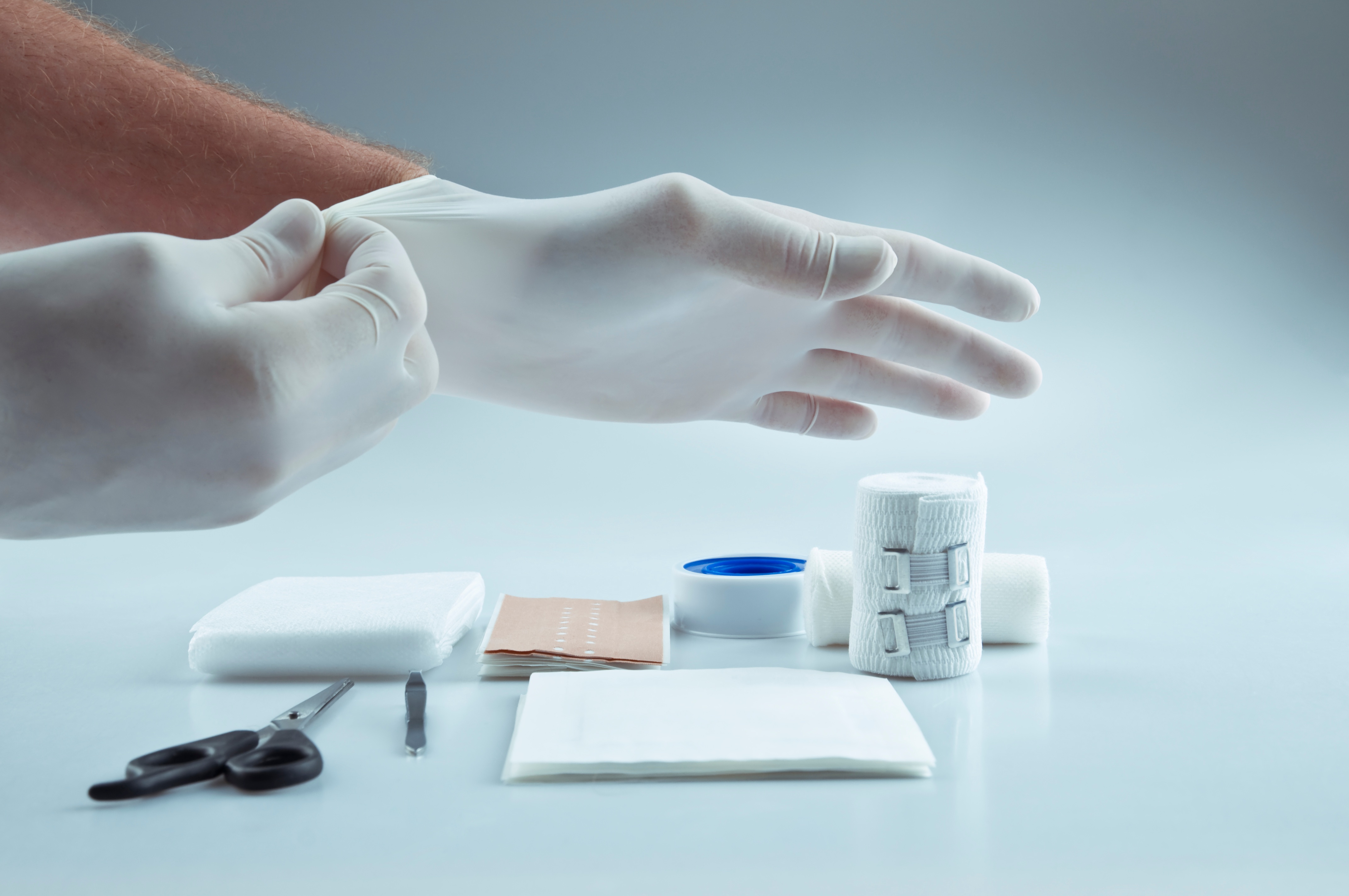
The Federal Drug Administration (FDA) is moving forward with a ban on powdered surgical and exam gloves. The agency conducted a thorough review of all available evidence, and decided the risk of aerosolized glove powder to patients and healthcare providers was too high.
The most serious risk comes from aerosolized glove powder from natural rubber latex gloves, which can cause respiratory allergic reactions. Other risks from powdered gloves include:
- Severe airway inflammation
- Wound inflammation
- Post-surgical adhesions
Many non-powdered glove options exist, so this ban should present no challenge to healthcare education providers instructing students on proper glove technique.
Non-powdered latex gloves are made out of natural rubber latex. They are close-fitting and have a high touch sensitivity. Unfortunately, many healthcare providers and patients may have a latex allergy, so these many not be a viable option across the board.
Another popular option are nitrile gloves. Nitrile gloves consist of a synthetic rubber, which doesn’t cause allergic reactions at the rate latex does. Non-powdered nitrile gloves are extremely resistant to punctures and tears, making them a good choice in healthcare and surgical settings. They fit close to the hand and have a high level of sensitivity.
A cost-effective option in low-risk settings are vinyl gloves. They are latex free, and have a looser fit than nitrile or latex gloves. They are best to use when patient contact is minimal, and when no hazardous materials are being handled.
Pocket Nurse offers a wide variety of non-powdered and non-latex gloves in our Infection Control section. Contact us for more information!
What type of surgical or exam glove will you choose to use?






